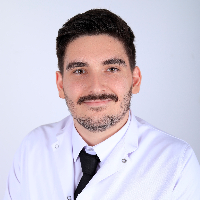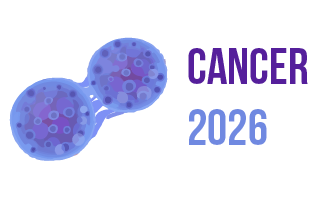4th International Conference on
Innovations and Advances in Cancer Research and Treatment
October 08-09, 2026 | Tokyo, Japan

Address: 68 Horinouchi, Narita, Chiba 286-0107, Japan
Cancer 2026

University of Pristina, Kosovo
Abstract:
Introduction:
War and armed conflict severely disrupt cancer care systems by destabilizing
infrastructure, draining financial resources, and displacing healthcare
personnel. Hospitals and clinics may become unsafe or inaccessible due to
bombardment, military occupation, or evacuation. Essential medical services
such as chemotherapy, radiotherapy, surgery, and follow-up care are often
interrupted. The breakdown of supply chains affects the availability of
medications, blood products, and stem cell donations. Moreover, logistical
difficulties and sanctions hinder the safe transport of critical resources from
outside regions, leaving cancer patients with limited or no access to life-saving
treatments.
Methods:
A comprehensive literature and media review was conducted, focusing on
publications from the past five years. Researchers from Ireland, Jordan,
Lebanon, and Kosovo analyzed their firsthand experiences and data on cancer
service delivery in conflict settings in this work.
Results:
The impact of war on cancer care is multifaceted. The war on Gaza since 2024 forced
Jordan to receive more than 23,000 children for treatment at the King Hussein
Cancer Center, which is the only center in Jordan for treating cancer patients.
The children are received at intermittent intervals, which increases the
consumption of medical equipment, stresses the medical staff, and increases the
pressure on the center.
Similarly, cancer care in war-torn countries, like
Kosovo, faces several significant challenges that are compounded by the impact
of conflict, economic instability, and the destruction of healthcare
infrastructure. Kosovo, which declared independence from Serbia in 2008 after a
long history of political instability, is still in a rebuilding phase, with
many of its systems, including healthcare, grappling with the aftermath of war.
This includes a lack of adequate medical facilities, limited access to modern
treatment options, and the shortage of specialized medical staff, all of which
create barriers to providing essential cancer care. Both regions highlight how
conflict severely disrupts cancer treatment, whether by overloading healthcare
centers or by undermining the foundations of an already fragile medical system.
Routine vaccinations, such as those needed after splenectomy, may be delayed or missed due to vaccine shortages and staff shortages. Basic medical supplies like masks and gloves often can't be restocked because of damaged transportation or security issues. Sterilization of surgical instruments is compromised when power infrastructure is damaged, and explosions targeting key facilities can halt hospital operations.
Diagnostic services, including imaging and lab testing, may become unavailable due to damaged equipment or the inability to maintain machines without spare parts and trained technicians. Follow-up appointments, critical for monitoring disease progression or response to therapy, may be indefinitely delayed as patients flee conflict zones or as physicians are reassigned, displaced, or injured.
Communication breakdowns and patient record losses further challenge continuity of care. In some conflict areas, cancer treatment regimens are altered, interrupted, or abandoned altogether. High-tech therapies like precision medicine, radiopharmaceuticals, and cellular therapies are rarely feasible due to their dependence on stable infrastructure and international cooperation.
Conclusions:
Cancer treatment requires a level of stability, coordination, and access that
is difficult to sustain in war-torn regions. While international humanitarian
efforts can offer temporary relief, sustained access to safe and effective
cancer care is only feasible in times of peace. Every effort must be made by
all stakeholders—governments, non-governmental organizations, healthcare
providers, and global institutions—to prevent conflict and ensure healthcare
continuation during crises. Preserving and restoring cancer services in
conflict settings is not only a medical imperative but a humanitarian one,
grounded in the principles of equity, dignity, and the right to health.
Biography:
He is a medical student and will graduate to be a medical doctor in Kosovo. His interest is cancer research. He collaborates with his other colleagues in the cancer research team of Professor Patricia Tai in Canada who serves as a mentor for them all.
